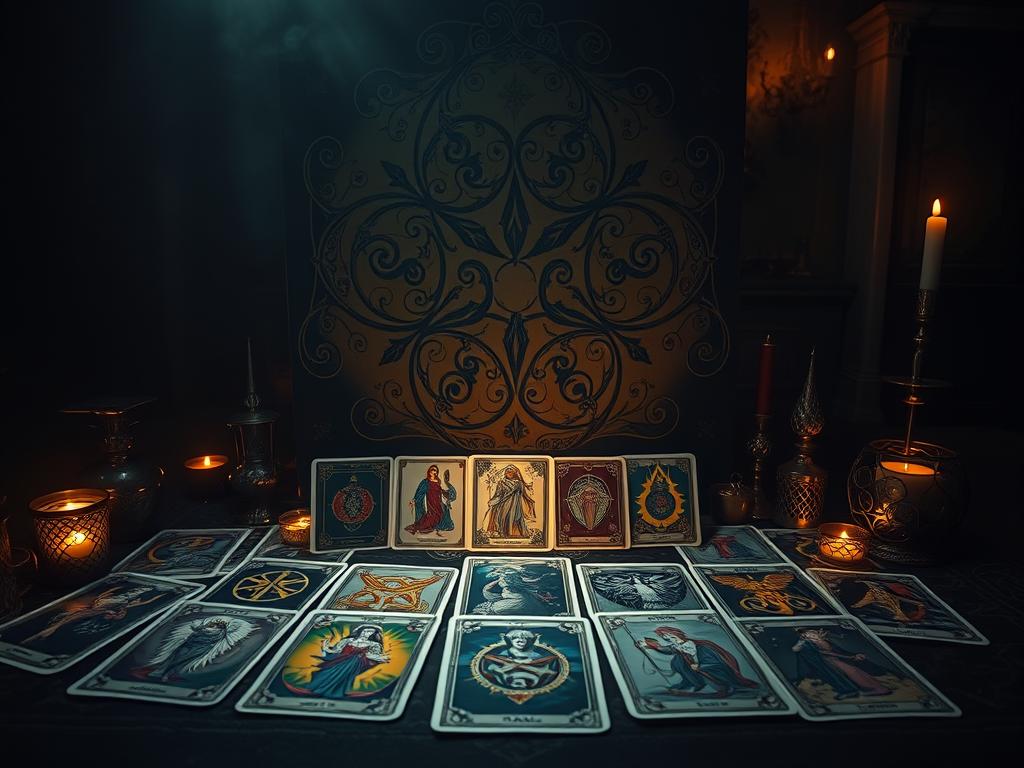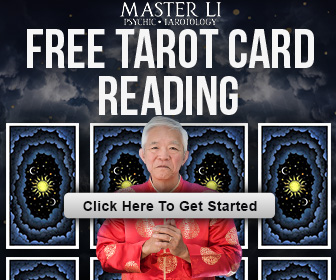Delving into the world of tarot readings can be a transformative experience, offering insights into one’s life journey and the mysteries of the universe. At the heart of this experience are tarot card questions, which serve as a gateway to understanding the symbolism and guidance offered by tarot cards.
For those seeking to deepen their connection with the tarot, exploring the depths of tarot can reveal new perspectives on love, purpose, and personal growth. Whether you’re a seasoned practitioner or just beginning your journey, the right questions can unlock the full potential of a tarot reading.
If you’re looking for guidance on how to navigate the world of tarot or need assistance with a reading, consider reaching out to experts who can provide guidance on tarot readings. With the right support, you can unlock the full potential of tarot and discover new paths forward.
Table of Contents
Understanding the Basics of Tarot Reading
Understanding the basics of tarot reading is essential for those seeking to uncover its mysteries. Tarot reading involves a complex interplay of symbolism, history, and intuition, making it a multifaceted tool for self-discovery and divination.
The History and Purpose of Tarot Cards
Tarot cards have a rich and somewhat mysterious history, evolving from a simple card game in the 15th century to a complex system of symbolism used for divination and self-reflection. The history of tarot cards is not well-documented, but it is believed that they were used for various purposes, including as a tool for spiritual growth and introspection. The purpose of tarot cards is to provide insight into an individual’s current situation, uncover hidden patterns, and offer guidance for the future.
For a more detailed exploration of questions to ask during tarot readings, you can refer to a comprehensive list of questions on True You Tarot.
How Tarot Readings Actually Work
Tarot readings involve a process of shuffling cards, laying out a specific pattern or spread, and interpreting the meaning of the cards based on their position and relationship to each other. The reader uses their knowledge of the tarot deck, which includes various symbols, themes, and archetypes, to provide insights into the querent’s question or situation. Effective tarot readings require a combination of knowledge, intuition, and the ability to synthesize the information presented by the cards.
Effective Tarot Card Questions to Ask During Readings
Asking the right questions is crucial for unlocking the full potential of tarot card readings. The quality of your questions directly influences the depth and accuracy of the insights you receive.
Open-Ended vs. Closed Questions
Tarot readings benefit significantly from open-ended questions that encourage detailed and nuanced responses. Unlike closed questions, which can be answered with a simple “yes” or “no,” open-ended questions foster a more comprehensive understanding of the situation. For example, instead of asking “Will I get the job?” you could ask “What are the prospects for my current job application?” For more examples of effective tarot card questions, you can visit Cosmopolitan’s guide.
Focusing Your Intention
Focusing your intention is crucial when formulating tarot card questions. Your energy and the reader’s interpretation should be aligned to get a meaningful reading. To achieve this, clearly define what you seek guidance on and ensure your questions reflect that intention. This clarity helps in receiving a more accurate and relevant tarot reading.
Questions to Avoid Asking
There are certain types of questions that are best avoided during tarot readings. Questions that are overly specific or negative can limit the scope of the reading or attract unwanted energy. It’s advisable to steer clear of questions that predict doom or fixate on negative outcomes. Instead, frame your questions to focus on growth, understanding, and positive progression.
Best Questions for Different Tarot Spreads
The versatility of tarot readings lies in the variety of spreads available, each suited to specific types of questions. Understanding the nuances of different spreads can help you tailor your questions to maximize the insights gained from the reading.
Questions for Three-Card Spreads
Three-card spreads are versatile and can be used to answer questions about past-present-future, situation-challenge-outcome, or other triadic themes. Effective questions for three-card spreads might include: “What is the current situation?”, “What challenge am I facing?”, and “What is the likely outcome?”
Questions for Celtic Cross Spreads
The Celtic Cross spread is a more complex and in-depth spread that can provide insights into various aspects of a question or situation. Questions for the Celtic Cross spread should be open-ended and focused on a specific area of concern, such as “What are the underlying factors influencing my current situation?” or “How will my current path influence my future?”
Questions for Single Card Pulls
Single card pulls are ideal for daily guidance or gaining insight into a specific question. Questions for single card pulls should be straightforward and focused, such as “What is the key message for me today?” or “What energy should I be aware of in this situation?”
| Tarot Spread | Best for | Example Questions |
|---|---|---|
| Three-Card Spread | Past-present-future or situation-challenge-outcome | “What is the current situation?”, “What challenge am I facing?”, “What is the likely outcome?” |
| Celtic Cross Spread | In-depth analysis of a question or situation | “What are the underlying factors influencing my current situation?”, “How will my current path influence my future?” |
| Single Card Pull | Daily guidance or insight into a specific question | “What is the key message for me today?”, “What energy should I be aware of in this situation?” |
Tarot Card Questions for Major Life Areas
Exploring major life areas through tarot card questions can help individuals gain a deeper understanding of their current situation and future possibilities. Tarot readings can offer guidance on various aspects of life, from relationships and career to personal growth and spirituality.
By formulating specific questions related to these areas, individuals can gain clarity and insight into their current challenges and opportunities. For more ideas on questions to ask during a tarot reading, you can refer to resources like tarot questions to ask.
Love and Relationship Questions
When it comes to love and relationships, tarot card questions can help individuals understand their current relationship dynamics or gain insight into future romantic possibilities. Examples of questions to ask include: “What are the current challenges in my relationship?” or “What can I do to attract a new relationship?”
These questions can provide clarity on how to navigate current relationships or how to open oneself up to new romantic opportunities.
Career and Financial Questions
Tarot card readings can also offer guidance on career and financial matters. Questions such as “What steps can I take to advance in my career?” or “What are the potential financial outcomes of my current decisions?” can provide valuable insights.
By asking these questions, individuals can gain a better understanding of their professional and financial landscape, helping them make more informed decisions.
Personal Growth and Spiritual Questions
For those seeking personal growth and spiritual development, tarot card questions can help individuals understand their current spiritual path and identify areas for growth. Examples include: “What spiritual practices can I adopt to enhance my personal growth?” or “How can I overcome current personal challenges?”
These questions can help individuals deepen their understanding of themselves and their spiritual journey, leading to greater self-awareness and personal fulfillment.
Timing and When to Ask Tarot Card Questions
To get the most out of tarot readings, it’s essential to consider the timing and method of your queries. Understanding when to ask questions can significantly impact the accuracy and relevance of the insights gained from tarot cards.
How Often to Consult the Tarot
The frequency of tarot readings depends on individual needs and circumstances. Some people prefer to consult the tarot regularly, such as daily or weekly, to stay connected with their inner selves and navigate life’s challenges. Others may seek tarot guidance only during times of uncertainty or significant change.
Regular tarot practice can help in tracking progress, identifying patterns, and making informed decisions. However, it’s also important not to become overly dependent on tarot readings. Finding a balance that works for you is key.
Self-Reading vs. Professional Readings
Another crucial aspect is deciding between self-readings and seeking professional tarot readings. Self-readings allow for personal reflection and growth, enabling individuals to tap into their intuition and understand the tarot symbolism better. On the other hand, professional readings offer an objective perspective, providing insights that might not be immediately apparent to the individual.
| Aspect | Self-Reading | Professional Readings |
|---|---|---|
| Perspective | Personal, subjective | Objective, external insight |
| Intuition Development | Enhances personal intuition | Provides new perspectives |
| Convenience | Can be done anytime | Requires scheduling |
Ultimately, whether to opt for self-readings or professional readings depends on personal preference, the purpose of the reading, and the individual’s comfort level with interpreting tarot cards.
Interpreting Answers to Your Tarot Card Questions
After receiving answers to your tarot card questions, the real work begins – interpreting the symbolism, themes, and messages conveyed by the cards. This process involves understanding the individual card meanings, as well as how they interact with each other to provide a deeper understanding of your situation.
Reading Card Combinations and Patterns
When interpreting tarot card answers, it’s essential to consider the combinations and patterns that emerge from the cards. For instance, a prevalence of Major Arcana cards may indicate a significant life event or turning point, while a dominance of suit cards (e.g., Cups or Pentacles) can suggest a focus on emotional or material aspects. By analyzing these patterns, you can gain a more nuanced understanding of the tarot’s message.
| Card Combination | Interpretation |
|---|---|
| Major Arcana + Cups | Emotional transformation or significant relationship event |
| Multiple Pentacles | Focus on material security, finances, or practical matters |
| Reversed Cards | Blocked energy, delays, or the need to revisit a situation |
Trusting Your Intuition vs. Card Meanings
While understanding traditional card meanings is crucial, it’s equally important totrust your intuitionwhen interpreting tarot card answers. Your initial reaction to a card or combination can often provide valuable insights that may not be immediately apparent from the card’s traditional meaning. By balancing knowledge with intuition, you can develop a more personal and meaningful connection with the tarot.
When to Seek Clarification Cards
Sometimes, the initial tarot card answer may not be entirely clear, or you may need further guidance. In such cases, seekingclarification cardscan be helpful. This involves drawing additional cards to provide more context or insights, helping to clarify the original message. By doing so, you can gain a deeper understanding of the tarot’s guidance and make more informed decisions.
Conclusion
Crafting effective tarot card questions is a powerful way to gain tarot reading insights into your life, helping you navigate various challenges and opportunities. By understanding the basics of tarot reading and formulating the right questions, you can unlock the full potential of tarot readings.
A summary of tarot card questions reveals that open-ended, focused, and intention-driven inquiries yield the most insightful responses. Whether you’re seeking guidance on love, career, or personal growth, tarot readings can offer valuable perspectives to inform your decisions.
As you continue to explore the world of tarot, remember that the quality of your questions directly impacts the quality of the insights you receive. By applying the principles outlined in this article, you can deepen your tarot practice and cultivate a richer understanding of yourself and your place in the world.


